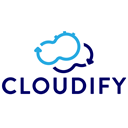Top OpenShift Alternatives for Your Cloud Application Needs
OpenShift, Red Hat's free, auto-scaling Platform as a Service (PaaS), is a powerful tool for deploying and managing applications in the cloud. It allows developers to focus on their code by handling much of the underlying infrastructure. However, for various reasons—cost, specific feature requirements, or integration needs—many developers and organizations seek out robust OpenShift alternatives. This article explores some of the best platforms that offer similar or complementary functionalities to OpenShift, helping you find the perfect fit for your projects.
Best OpenShift Alternatives
Whether you're looking for open-source flexibility, specialized cloud services, or a different pricing model, these platforms offer compelling reasons to consider them over or alongside OpenShift.

Heroku
Heroku is a popular platform as a service (PaaS) that excels in enabling developers to build, run, and operate applications entirely in the cloud. It's a Freemium service available on Mac, Windows, Linux, and Web, making it a highly accessible OpenShift alternative. Heroku offers robust features like Custom DNS, DNS management, automated deployment, command-line support, and strong support for Python applications, providing a streamlined developer experience.

Kubernetes
Kubernetes is an open-source orchestration system for Docker containers, making it a direct competitor and a powerful OpenShift alternative, especially since OpenShift itself is built on Kubernetes. It's free and open-source, primarily Web-based, and includes features like Container Orchestration, Hypervisor capabilities, and support for Virtual Machines and Virtualization, offering immense control over your containerized applications.

Google App Engine
Google App Engine is a powerful Freemium platform for developing and hosting web applications in Google-managed data centers. As a Web-based OpenShift alternative, it offers fast development and deployment, alongside features such as API integration, import from MySQL, PHP IDE support, and excellent support for NodeJS, catering to a wide range of web application needs.

Rancher
Rancher is an open-source project designed to provide a complete platform for operating Docker in production. Available for Free on Windows and Linux, Rancher stands out as a strong OpenShift alternative for managing containerized workloads. Its features include Cloud Monitoring, comprehensive support for Docker, and detailed System Info, making it ideal for teams focused on container orchestration.

Nanobox
Nanobox is a Commercial and Open Source platform that streamlines the DevOps process for developers. Available on Mac, Windows, Linux, and Web, it takes on infrastructure creation and configuration, functioning as an excellent OpenShift alternative for those seeking to offload DevOps complexities. Its features include Automated deployment, Cloud coding, DEV/OPS setup, comprehensive Developer Tools, an integrated IDE, and the ability to work offline.

Microsoft Azure
Microsoft Azure is a comprehensive Commercial cloud platform that allows users to build, host, and scale applications in Microsoft datacenters. Available on Web, Android, and Android Tablet, Azure provides a robust OpenShift alternative for enterprises. Key features include Auto Virtual Host, extensive Cloud Storage, CDN capabilities, Virtual Machines, and versatile Web hosting solutions.

Amazon Elastic Compute Cloud
Amazon Elastic Compute Cloud (Amazon EC2) is a Commercial web service that provides resizable compute capacity in the cloud. Available on Windows, Linux, and Web, Amazon EC2 is a highly scalable OpenShift alternative, particularly for those who need fine-grained control over their computing resources. Its features include a wide array of Developer Tools, excellent Scalability, and reliable Web hosting.

HelioHost
HelioHost offers community-powered free hosting for everyone, making it an accessible and free Web-based OpenShift alternative for smaller projects or learning environments. It supports a variety of programming languages and frameworks, including Python, PHP, and Ruby. Features like Django, Java IDE, JSP support, PHP IDE, PHP Pear support, and PhpMyAdmin highlight its versatility for web development.

Cloud Foundry
Cloud Foundry is a leading open-source PaaS (Platform as a Service) designed for Java, Ruby, Python, and Node.js applications. As a Free and Open Source Web-based platform, it serves as a strong OpenShift alternative for developers seeking an open and flexible cloud environment. It features PHP IDE support, MongoDB integration, and robust support for Python and Ruby.

Cloudify
Cloudify is a Free and Open Source orchestration-first, model-driven cloud management platform, native to Network Function Virtualization (NFV) and based on TOSCA. Available on Mac, Windows, Linux, and Web, Cloudify presents itself as a comprehensive OpenShift alternative, especially for complex network and cloud environments. It boasts features like Cloud-based operations, Cloud Monitoring, Continuous Deployment, Multi-Tenant capabilities, Network Monitoring, Nginx support, and integration with Python and Ruby.
Choosing the right platform depends on your specific project requirements, budget, and desired level of control. Each of these OpenShift alternatives offers unique strengths in terms of features, pricing, and community support. We encourage you to explore them further to find the best fit for your cloud application development and deployment needs.